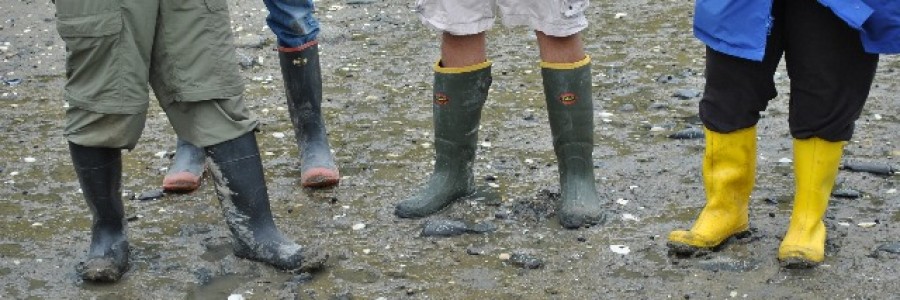
New England Sustainability Network (NEST) – Track 2
Current Track 2 – NEST: Maine and New Hampshire’s coastal tourism and shellfish industries contribute millions of dollars annually to the regional economy. In Maine in 2010, coastal tourism and recreation added $1.1 billion to Maine’s gross domestic product, while shellfish landings in that same year generated revenues of $347 million. But the coastal environment is vulnerable to the effects of land development and climate change.
A team of researchers led by the University of Maine (UMaine) and the University of New Hampshire (UNH) will conduct a three-year study of the many factors affecting the health of their shared coastal ecosystem. This collaboration, funded by a $6 million award from the National Science Foundation (NSF), aims to strengthen the scientific basis for decision making related to the management of recreational beaches and shellfish harvesting. This research is a direct outgrowth of Maine’s Sustainability Solutions Initiative (SSI), supported by the NSF EPSCoR program.
The project, titled the New England SusTainability Consortium (NEST), is managed by the EPSCoR programs at UMaine and UNH in partnership with College of the Atlantic, University of New England, University of Southern Maine, Great Bay Community College, Plymouth State University, and Keene State College. In Maine, researchers will also collaborate with several state agencies and other stakeholders, including the Maine Department of Environmental Protection (DEP), Maine Department of Marine Resources (DMR), Maine State Department of Education (DOE), and Maine Healthy Beaches (MHB).
